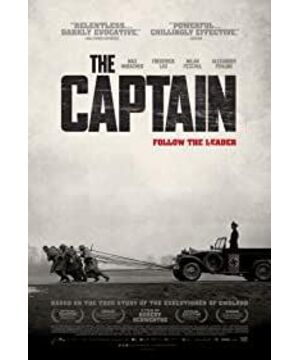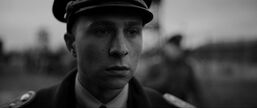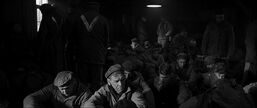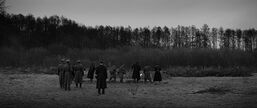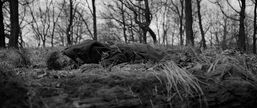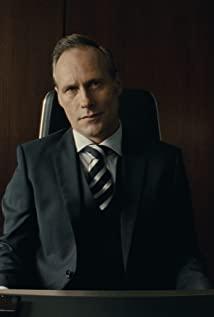The film is a psychological exploration of how fascism is rooted in the cowardly heart. Herold sets out to assemble a horde of misfit deserters and military thugs in search of his final prey and a heavily armed leader, Herold, is increasingly comfortable with the role. He saw how others admired him when he carried out the heist; he longed for more recognition. As a captain, he was never sympathetic, but his behavior, driven by a group of psychopaths as their world crumbled around them, was almost predictable: if his new crew craved blood, he would give them.
"Captain Imposter" is based on the true story of Willi Herold. Separated from his regiment as German troops retreated back to his company, Herold went to a concentration camp as captain and ordered the execution of more than 100 prisoners.
Personally, I think what Svenk is trying to tell is that even the weak, especially the weakest, can rise up to rebel when suddenly given dictatorial power. Max Hubacher played Willie with extraordinary conviction, shrinking his face into a mouse-like appearance, first in fear, then in brutal smugness. Willie could pretend to be his captain and indulge in all kinds of luxuries in the final days of the war, which he eventually did, but he mostly wanted to show off his newfound power in the most terrifying way possible.
It can be difficult for audiences to relate to the film: there are no characters in the film that can be seen as compassionate. Most of Herold's victims were deserters from the army, or unknown civilians whom he considered traitors to his homeland. His peers were Nazis. No one's fate is particularly touching!
Still, the film's black and white shots are beautifully shot. The craftsmanship of the film is of high quality. Svenk brings the brutal winters of the war to real life. If you're interested in the historical details of war, or are interested in psychopathic war criminals, this might be the movie for you.
Why I titled the wild in troubled times, I explained it with several scenes and scenes in the film:
Quicklime was thrown over the bodies of dozens of dying prisoners after a botched mass execution attempt. One by one, four camp inmates were tied together and forced to run across a muddy field, shot by Nazi officers for fun, dragging the bodies of their comrades behind them. In the final days of World War II, everyone in the film is transformed into the meanest of animals, willing to commit all manner of atrocities in exchange for the tiniest and most fleeting luxuries. But the most shocking part of the film is actually at the end, when you discover that a seemingly brutal world of pessimism is actually based on real events. This is actually the scariest place ever!
View more about The Captain reviews


